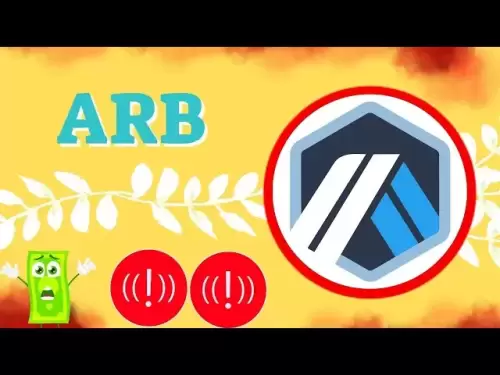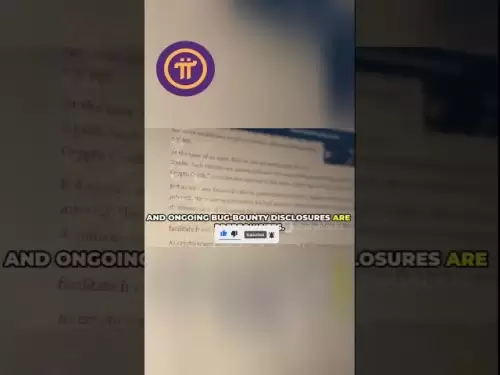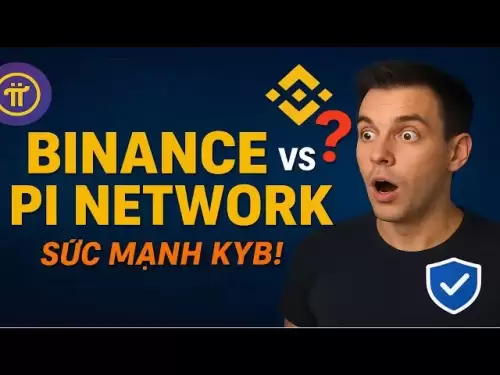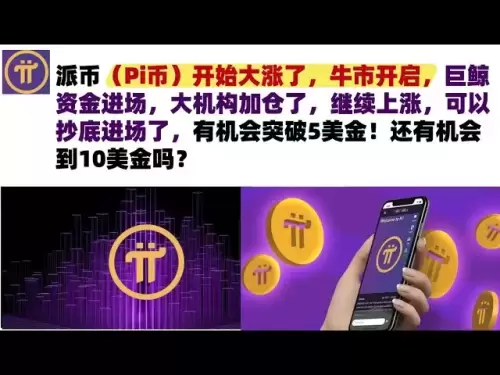-
 Bitcoin
Bitcoin $116400
-0.36% -
 Ethereum
Ethereum $4033
3.40% -
 XRP
XRP $3.302
-1.26% -
 Tether USDt
Tether USDt $1.000
-0.02% -
 BNB
BNB $796.1
1.67% -
 Solana
Solana $177.8
1.89% -
 USDC
USDC $0.9999
0.00% -
 Dogecoin
Dogecoin $0.2314
4.09% -
 TRON
TRON $0.3381
0.14% -
 Cardano
Cardano $0.7989
1.22% -
 Stellar
Stellar $0.4496
-1.84% -
 Chainlink
Chainlink $20.42
9.42% -
 Hyperliquid
Hyperliquid $41.17
0.88% -
 Sui
Sui $3.914
3.77% -
 Bitcoin Cash
Bitcoin Cash $584.7
1.52% -
 Hedera
Hedera $0.2632
-0.54% -
 Avalanche
Avalanche $24.09
3.40% -
 Ethena USDe
Ethena USDe $1.001
-0.02% -
 Litecoin
Litecoin $123.2
1.33% -
 Toncoin
Toncoin $3.318
-0.04% -
 UNUS SED LEO
UNUS SED LEO $8.984
-0.05% -
 Shiba Inu
Shiba Inu $0.00001323
2.85% -
 Uniswap
Uniswap $10.90
4.41% -
 Polkadot
Polkadot $3.999
3.34% -
 Dai
Dai $1.000
0.01% -
 Cronos
Cronos $0.1630
9.64% -
 Bitget Token
Bitget Token $4.484
0.82% -
 Monero
Monero $272.4
2.44% -
 Pepe
Pepe $0.00001173
6.03% -
 Aave
Aave $290.8
2.88%
What is the governance mechanism of bnb coin?
BNB governance blends Binance's centralized control with community voting via Binance Chain, where voting power is weighted by BNB holdings. While community input is valued, Binance retains final authority on implementing changes.
Mar 04, 2025 at 09:18 am
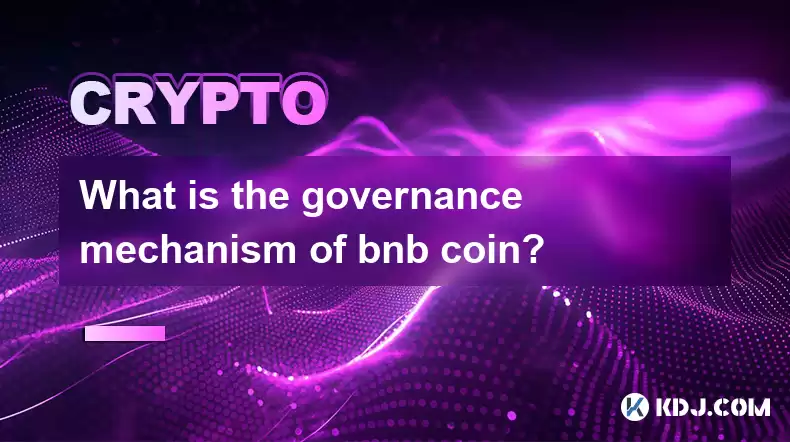
Key Points:
- BNB governance operates through a dual system: Binance's centralized control and community-led proposals via Binance Chain's decentralized governance model.
- Binance retains significant control over BNB, influencing key decisions and updates.
- Community members can propose and vote on changes impacting the BNB ecosystem, albeit with limitations on the extent of their influence.
- Voting power is typically weighted by the amount of BNB held, rewarding larger holders.
- The governance process aims to balance community input with the need for stability and efficient development.
- Participation in BNB governance requires holding BNB on a compatible wallet and actively engaging in voting periods.
What is the Governance Mechanism of BNB Coin?
BNB, the native token of the Binance ecosystem, operates under a hybrid governance model, blending centralized control by Binance with elements of decentralized community participation. This dual approach allows for both rapid decision-making and community input, although the extent of decentralized control remains a subject of ongoing discussion.
Binance, as the creator and primary operator of the BNB chain, retains significant influence over the direction of the project. Major updates, protocol changes, and strategic decisions are largely determined by Binance's internal teams. This centralized element ensures swift action and prevents potential gridlock inherent in purely decentralized systems. However, it also raises concerns about the level of community control.
To facilitate community involvement, Binance introduced a decentralized governance mechanism through Binance Chain. This system allows BNB holders to propose and vote on various aspects of the BNB ecosystem. These proposals might cover topics like parameter adjustments, fee structures, or even the introduction of new features. The process usually involves a period for proposal submission, community discussion, and a final vote.
Participation in this decentralized governance system is directly proportional to the number of BNB tokens held. Users with larger BNB holdings wield greater voting power, reflecting a common model in many blockchain governance systems. This weighting system, while promoting participation from significant stakeholders, also raises questions about the potential for dominance by large holders, potentially overshadowing the input of smaller community members.
The voting process itself usually involves a clear set of rules and timelines. Proposals need to meet specific criteria before being considered, and the voting period is usually announced in advance. The results of the voting are then publicly announced, and, depending on the outcome, the relevant changes are implemented. However, the final implementation of voted-upon changes rests with Binance, giving them the power to veto or modify community decisions.
The specifics of the governance process, including the types of proposals eligible for community voting and the threshold required for approval, can vary. Binance may periodically update these rules to refine the system and address potential issues that may arise. The evolution of the governance system is ongoing, aiming for a balance between community engagement and the need for efficient, stable development of the BNB ecosystem. The level of influence the community has remains a point of discussion and is subject to change based on Binance's decisions.
How does Binance influence BNB governance?
Binance maintains a significant level of control over BNB's governance. While community proposals exist, Binance ultimately retains the authority to accept, reject, or modify any changes suggested through the decentralized governance system. This centralized power allows Binance to maintain stability and direction within the ecosystem, even if community voting suggests a different path. The level of influence Binance exercises can vary depending on the specific proposal.
What is the role of BNB holders in governance?
BNB holders have a voice in the governance process through participation in voting on proposals submitted through the Binance Chain's decentralized system. However, the influence of individual holders is weighted by the amount of BNB they own. Larger holders have a proportionally greater influence on the outcome of votes. While their input is valued, it's crucial to understand that Binance retains final authority over implementing the results of community votes.
How can I participate in BNB governance?
To participate in BNB governance, you need to hold BNB in a compatible wallet that supports interaction with the Binance Chain. Once you hold BNB, you will typically be notified of upcoming voting periods. During these periods, you can review submitted proposals, research their implications, and cast your votes according to your preferences. The specifics of participation might vary depending on the platform or wallet you use to manage your BNB.
What are the limitations of BNB's governance model?
The hybrid nature of BNB's governance introduces inherent limitations. The centralized control retained by Binance restricts the extent of true decentralization, potentially leading to concerns about community influence. The weighting of voting power by BNB holdings can create imbalances, where larger holders disproportionately influence outcomes. Furthermore, the approval and implementation processes are subject to change based on Binance's internal decisions, which could impact the perceived fairness and transparency of the governance mechanism.
Is BNB governance truly decentralized?
No, BNB's governance is not fully decentralized. While it incorporates a community voting mechanism, Binance ultimately retains significant control over the decision-making process. The ability of Binance to override or modify community votes represents a significant centralization factor. The level of community influence is a subject of ongoing discussion and depends on Binance's approach to balancing community input with its own strategic objectives.
How does the voting system in BNB governance work?
The voting system typically involves a proposal submission period, a community discussion phase, and a formal voting period. Proposals must meet certain criteria to be considered. During the voting period, BNB holders can cast their votes, with the weight of their vote proportional to their BNB holdings. After the voting period concludes, the results are announced, and Binance determines whether and how to implement the outcome of the vote. The specifics of the process can be subject to change based on updates to the governance system.
Disclaimer:info@kdj.com
The information provided is not trading advice. kdj.com does not assume any responsibility for any investments made based on the information provided in this article. Cryptocurrencies are highly volatile and it is highly recommended that you invest with caution after thorough research!
If you believe that the content used on this website infringes your copyright, please contact us immediately (info@kdj.com) and we will delete it promptly.
- Shiba Inu (SHIB) in the Crypto Landscape: Community, Trends, and Future Outlook
- 2025-08-09 20:30:12
- Lasers in Modern Warfare: Iron Beam and the Future of Defense
- 2025-08-09 20:30:12
- Maxi Doge Presale: The Meme Coin That's Pumping Iron and Prices!
- 2025-08-09 19:10:11
- Rare Coin Warning: Don't Get Fooled by That 1p Coin!
- 2025-08-09 18:50:12
- Cardano, Unilabs, and Tron Price: Decoding the Latest Crypto Buzz
- 2025-08-09 18:30:12
- Aerodrome Finance: Price Targets and the Bullish Channel - What's Next?
- 2025-08-09 18:50:12
Related knowledge

Where can I buy UMA (UMA)?
Aug 07,2025 at 06:42pm
Understanding UMA and Its Role in Decentralized FinanceUMA (Universal Market Access) is an Ethereum-based decentralized finance (DeFi) protocol design...

How to buy Storj (STORJ) tokens?
Aug 09,2025 at 07:28am
Understanding Storj (STORJ) and Its Role in Decentralized StorageStorj is a decentralized cloud storage platform that leverages blockchain technology ...

What is the best app to buy Nano (NANO)?
Aug 09,2025 at 03:35am
Understanding Nano (NANO) and Its Unique FeaturesNano is a feeless, instant cryptocurrency designed for fast peer-to-peer transactions. Unlike many ot...

Where can I purchase Siacoin (SC)?
Aug 08,2025 at 11:14am
Understanding Siacoin (SC) and Its Role in the Sia NetworkSiacoin (SC) is the native cryptocurrency of the Sia decentralized cloud storage platform, a...
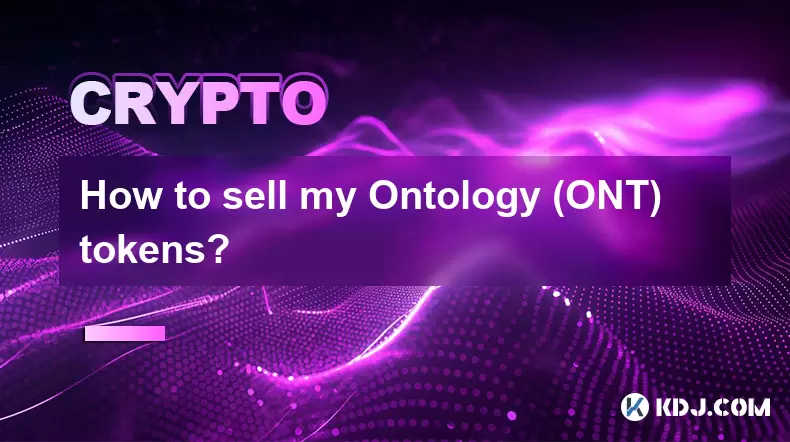
How to sell my Ontology (ONT) tokens?
Aug 09,2025 at 06:08pm
Understanding Ontology (ONT) and Its Trading EcosystemBefore selling your Ontology (ONT) tokens, it's essential to understand the nature of the crypto...

Where can I buy OMG Network (OMG)?
Aug 08,2025 at 12:57pm
Understanding OMG Network (OMG) and Its PurposeThe OMG Network, originally known as OmiseGO, is a layer-2 scaling solution built on the Ethereum block...

Where can I buy UMA (UMA)?
Aug 07,2025 at 06:42pm
Understanding UMA and Its Role in Decentralized FinanceUMA (Universal Market Access) is an Ethereum-based decentralized finance (DeFi) protocol design...

How to buy Storj (STORJ) tokens?
Aug 09,2025 at 07:28am
Understanding Storj (STORJ) and Its Role in Decentralized StorageStorj is a decentralized cloud storage platform that leverages blockchain technology ...

What is the best app to buy Nano (NANO)?
Aug 09,2025 at 03:35am
Understanding Nano (NANO) and Its Unique FeaturesNano is a feeless, instant cryptocurrency designed for fast peer-to-peer transactions. Unlike many ot...

Where can I purchase Siacoin (SC)?
Aug 08,2025 at 11:14am
Understanding Siacoin (SC) and Its Role in the Sia NetworkSiacoin (SC) is the native cryptocurrency of the Sia decentralized cloud storage platform, a...

How to sell my Ontology (ONT) tokens?
Aug 09,2025 at 06:08pm
Understanding Ontology (ONT) and Its Trading EcosystemBefore selling your Ontology (ONT) tokens, it's essential to understand the nature of the crypto...

Where can I buy OMG Network (OMG)?
Aug 08,2025 at 12:57pm
Understanding OMG Network (OMG) and Its PurposeThe OMG Network, originally known as OmiseGO, is a layer-2 scaling solution built on the Ethereum block...
See all articles





















